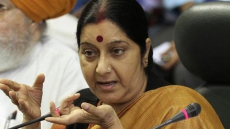Due to climate change, conditions of heat and humidity in the areas of Saudi Arabia where the Hajj takes place could worsen to the point that people start experiencing harmful health effects, researchers said.
The study, published in the Geophysical Review Letters, shows risks to Hajj pilgrims could already be serious as the Hajj takes place in the hottest summer months.
"Each year the Hajj occurs about 11 days earlier, so there are only certain spans of years when it takes place during the hottest summer months. Those are the times that could become dangerous for participants," said Elfatih Eltahir, Professor at Massachusetts Institute of Technology in the US.
There have already been signs of this risk becoming real. Although the details of the events are scant, there have been deadly stampedes during the Hajj in recent decades -- in 1990, 1,462 people were killed and in 2015, 769 were left dead and 934 injured.
According to the researchers, both of these years coincided with peaks in the combined temperature and humidity in the region, as measured by the "wet bulb temperature", and the stress of elevated temperatures may have contributed to the deadly events.
"If you have crowding in a location, the harsher the weather conditions are, the more likely it is that crowding would lead to incidents such as those," Eltahir added.
The wet bulb temperature (TW), which is measured by attaching a wet cloth to the bulb of a thermometer, is a direct indicator of how effectively perspiration can cool off the body.
The higher the humidity, the lower the absolute temperature that can trigger health problems. At anything above a wet bulb temperature of 103 degrees Fahrenheit, the body can no longer cool itself and such temperatures are classified as a "danger" by the US National Weather Service.
A TW above 124 Fahrenheit is classified as "extreme danger" at which heat stroke, which can damage the brain, heart, kidneys and muscles, is "highly likely" after prolonged exposure.
Climate simulations considered by the research team show that the likelihood of exceeding these thresholds for extended periods will increase steadily over the course of this century.
Climate change will significantly increase the number of days each summer where wet bulb temperatures in the region will exceed the "extreme danger" limit, researchers said.
